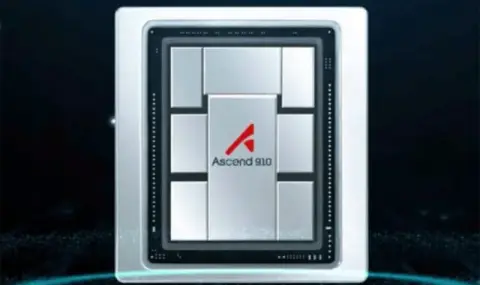The emerging de-escalation of the confrontation between the US and China in the field of foreign trade has not prevented US authorities from declaring the illegal use of Huawei Ascend accelerators by third parties without the appropriate licenses as a violation of US export control rules. Apparently, these measures are aimed at creating demand for American accelerators in the Middle East.
The Huawei Ascend 910C chip, like other AI accelerators, is actually a graphics processing unit (GPU), which, according to experts, reaches performance levels comparable to those of the Nvidia H100. This was made possible by combining two 910B chips into a single package using advanced integration technologies.
These days, US President Donald Trump is on a visit to Middle Eastern countries with impressive capital and ambitions to develop a national artificial intelligence infrastructure. The American delegation is joined by Nvidia founder and CEO Jensen Huang. His company has already committed to supplying hundreds of thousands of its accelerators to Saudi Arabia over the next five years.
The Bureau of Industry and Security (BIS) of the US Department of Commerce, as reported by Nikkei Asian Review, announced yesterday that under US law, any use of Huawei Ascend accelerators is a violation of US export control regulations, which carries penalties up to imprisonment, and also risks blocking the supply of American accelerators to violating companies and countries. According to the logic of American officials, Huawei's accelerators were designed and manufactured in violation of American export control regulations, so any use of them is also a violation of American law.
It is known that Middle Eastern investors are equally willing to use both American and Chinese computing resources for the development of national infrastructure, but under the new conditions they will have to make a specific choice. Experts explain that for Huawei at this stage, such American sanctions will carry many conditional risks, since the company does not have enough accelerators even for its own needs, not to mention their active export. However, over time, the impact of such restrictions on Huawei's business may become more pronounced, although this is unlikely to affect the company's relations with its Chinese customers.
